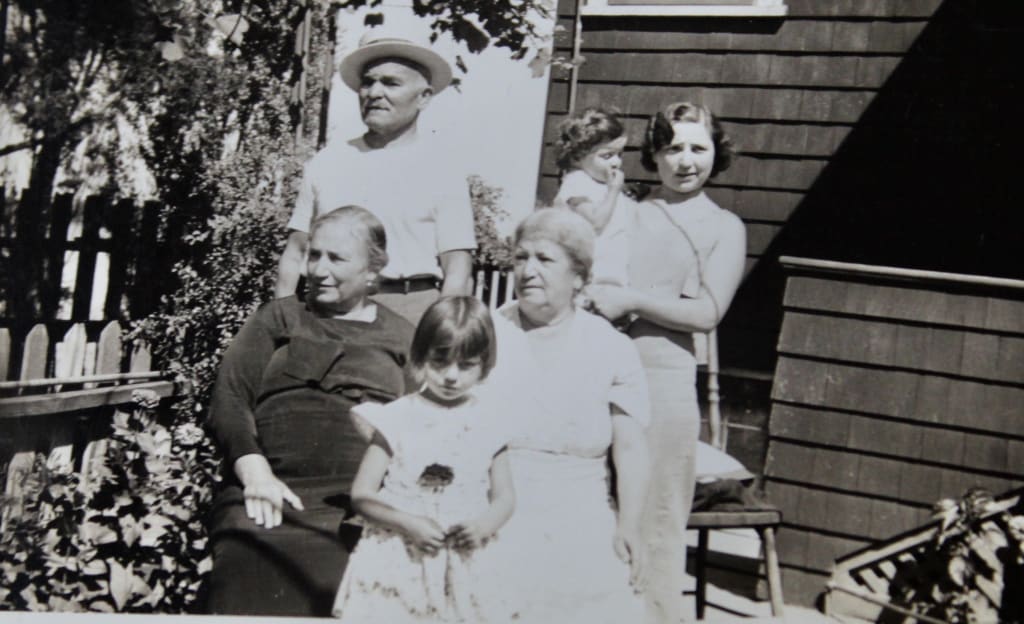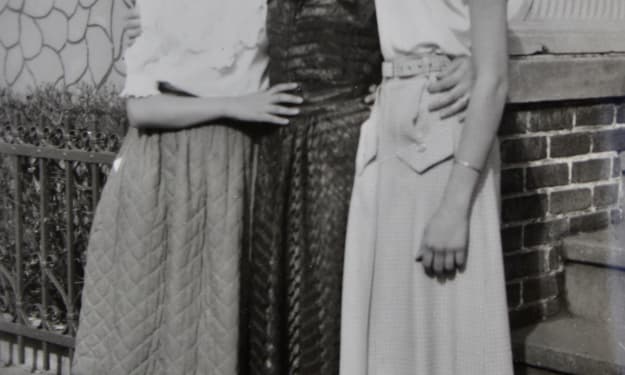My Great Grandmother Held her Own
Carmela Ancora Makes a Life in America

Carmela Ancora grew up in Franca Villa, and her grandmother owning a successful business, the family had an upperclass lifestyle. So Carmela graduated from High School and played the piano. Carmela married Belasario Ancora in 1885 at the age of 16 and had seven children. But while circumstances bigger than the family led to a life of seperation for the three surviving Ancora children, my great grandmother lived a rich fulfilling life
Three siblings died as infants and an eight year old brother succumbed to of diphtheria. Otherwise, Cicello emigrated to Bueno Aires and greeted Luigi and Maria years later.
The family business had Carmela cleaning the olives and keeping track of the books, while Belasario worked as a conductor and provided music lessons. He set his sights elsewhere, though, and made for America.
Events did not allow (partial) reunification until 1925 in Providence, and Carmela arrived at Ellis Island with her daughter Anna. An imperfect system, people’s last names were changed and children who were cross eyed were sent back with their families, according to Carmela’s account.
Her quick wit and outspoke nature probably helped ease her transition. But transatlantic change was eased by the fact that there were many people from her old home town. Unfortunately, Belasario’s death in 1932 forced Carmela’s move to NYC with Nonni (Anna) and Nonno (Angelo).
Nonno and Carmela mostly got a long. Like many Italians, Nonno had the utmost respect for his in-law. This despite the fact that Carmela had a lot to say, and the two didn’t always agree.
One occasion occurred when my Mom's take on Mussolini wasn’t quite in line with Nonno’s. Ada argued that everything associated with Mussolini actions was wrong for Italy and the world, while Nonno disagreed with the totality of the statement. Her father still felt some of Mussolini’s positive impacts were worth noting.
So Carmela stepped in. The mother-in-law instructed Nonno that he needed to respect what the schools were teaching and what his daughter was learning.
Interestingly, her opinion was more in line with her son-in-law. Carmela felt Mussolini had his downsides but acknowledged his reforms in education and society. In the end, Mussolini’s biggest sin was becoming aligned with Hitler, which led to Italy’s ruin.
Geopolitics aside, Carmela was always up for a card game with Nonno, Manuelo the barber and Nonno’s cousin Angelino. “She held her own,” said Ada.
Otherwise, she played solitaire on the front porch, while keeping on eye on the neighborhood kids. She also satisfied the stereotype of the cranky old lady watching over. “Stay off our porch and stop playing stoop ball,” she would chide.
On the other hand, Carmela wasn’t all, get off my lawn. In the summer, Carmela would get on the trolley to Orchard Beach with her granddaughters and neighborhood kids. “She loved the water and wore an inflatable tube,” Mommy said.
Of course, the kids knew who the boss was. “We all listened to her - even if not everybody understood Italian,” Ada remembers.
Back at home, the dog and cat knew the feeling. Patch understood to stay out of her way and both learned to walk around the rug in the living room.
She didn’t pull any punches when the fish and vegetable cart came around either. “Don’t put your finger on the scale,” she’d direct the vendor.
Grandma had no problem spoiling her granddaughters, though. She gave us baths, braided our hair and did most of the cooking. “Viene a mangiare,” Carmela would call out.
The good food and the homemade macaroni roll did not rub off on Ada, and always redirected her grandmother’s efforts to teach her. “I will cross that bridge when I come to it,” mommy would tell her.
The necessity obviously came in 1957, and the old school instructions were definitely a challenge. A little of this and a little of that always got the same response. “How much is a little,” Ada remembers.
But the real slight initially was directed at her future husband. “He’s like a long pole, what do you see him,” Mommy remembers, and Carmela called him Elevator Boy.
Charlie Monetti worked the elevator at the Hotel Roosevelt, but when he came to visit on Garfield Street, Daddy frequently asked, “Who is Louie.”
Lui means him, and that’s what Charlie usually heard from Carmela. But Uncle David’s introduction was more tenuous. His Navy tattoo said Mafia from Carmela’s experience, and the matriarch was horrified. But once explained, David Bianchi fast tracked passed Charlie in Carmela’s eyes.
All was good by Lita and Ada’s weddings in 1956 and 1957, but Carmela’s health had deteriorated by then. In the early 1950s, her esophagus had been replaced by a plastic tube, and worn out after almost 10 years, she was too old for an operation.
At home with her family, Carmela died on January 18, 1960.
Please Like My Page on Facebook
About the Creator
Rich Monetti
I am, I write.






Comments
There are no comments for this story
Be the first to respond and start the conversation.